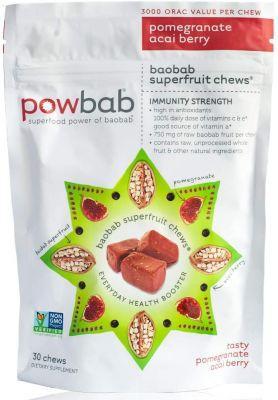
The history of baobab fruit it has two phases: the first, that of traditional use by indigenous peoples, is lost in the mists of time.
His abilities of keep the body healthy and regenerate the cells have been used for many remedies and the baobab tree has entered by right in many legends and in the sacred imagination of African peoples also because it is an invaluable water reserve in arid places.
The second phase in the history of the baobab begins when its reputation goes beyond the African villages and reaches the ears of researchers in the Western world, giving it a rightful place among the best herbal remedies currently on the market, in particular for intestinal functions, but not only.
Action of the baobab on the intestine
Let's look a little more specifically on the positive functions of the baobab on the intestine. Let's start from fibers. As is known, dietary fibers are soluble and digestible polysaccharides only in a small part: the non-digestible fiber crosses the intestinal tract, cleaning it from various waste with a "brush" action, while the soluble dietary fiber of the baobab is rich in mucilage able to act as a prebiotic and rebalance the intestinal microflora stimulating growth of lactobacilli.
The percentage of soluble fibers in the dried baobab pulp oscillates between 20% and 25%, a feature that makes it an almost unique fruit in nature. The same percentages also apply to the insoluble fiber, able among other things to promote the coordinated movement of smooth muscles in order to promote proper digestion.
Vitamin C and other antioxidant nutrients prevent inflammation of the intestinal mucosa. With an efficient and balanced intestine, it will be easier to allow the absorption of all the phytonutrients contained in the baobab and make the most of its richness in vitamins and trace elements.
Principles contained in the baobab
When we buy and take on baobab products we are always dealing with del powdered material or chalky and totally dehydrated granules; even in the countries of origin, for most of the uses the baobab fruit is left behind dry outside.
The drying, which involves a greater concentration of principles, clarifies the statistical mystery that recognizes the baobab percentage of vitamins and other phytonutrients that are extremely higher than those of other fruits: in fact, in the common fresh fruit also water is measured, the percentage of which almost always exceeds 85%.
So what do these statistics tell us? That the dried baobab pulp is high in fiber, free of lipids and very low in protein; is very rich in ascorbic acid, has good contents of mucilage, flavonoids e Anthocyanins, an excellent content of many elements such as rame, zinc, iron and calcium, and a decent level of Thiamin e vitamin PP.
Therefore the baobab pulp it should not be considered a food but a supplement and, as such, it is necessary to moderate consumption and rationalize dosages.
Baobab oil, properties and use for skin and hair, and more
How to find it, how to take it
Dried baobab pulp or baobab powder bottles and tablets are readily available on the web, but can be found even in the pharmacy, in herbalist's shops, in wellness and organic food shops, in wellness fairs, etc.
Percentages in hand, it will not be difficult to calculate the quantities of dried pulp to take, exactly as if it were a supplement (which in fact it is). Whole dried pulp can be taken naturally, taking a chalky scale to suck as if it were a candy until it is completely dissolved; products based on pulp powder instead they are easier to take if dissolved in water or added to juices, centrifuged, extracts and other beverages or to yoghurt.
The baobab it has no precise contraindications, however, it is good not to overdo it so as not to put stress on the digestive system. Depending on the disorder we want to combat, it can reach up to 20 grams per day, divided into several dosages.
Other beneficial functions of the baobab
The baobab is therefore a food supplement among the most effective for safeguarding the health and good functioning of the intestine, but it is impossible to refrain from mentioning even in passing some other functions that it performs on the human body.
There are numerous studies on the positive action of taking baobab pulp in cases of diabetes mellitus; its ability to combat theanemia; it is used successfully in case of weakness, general malaise, asthenia; turns out to be an ideal remedy for all cases of inflammation; finally, it also has quality hepatoprotective, anti-asthma, skin protective, antiviral and antimicrobial.
Baobab powder for the immune system


























